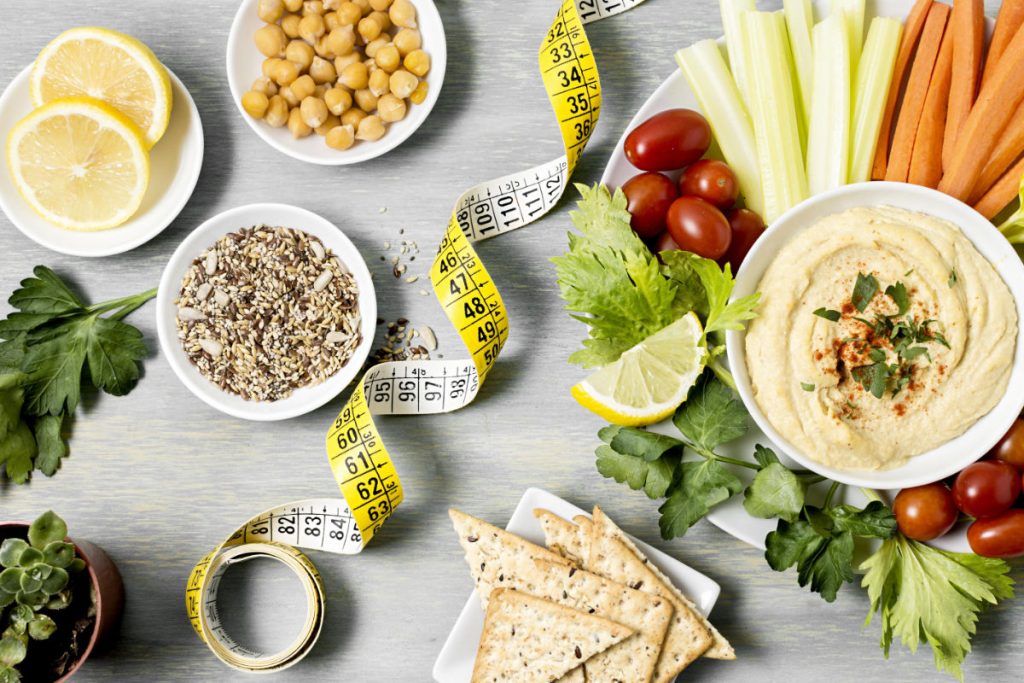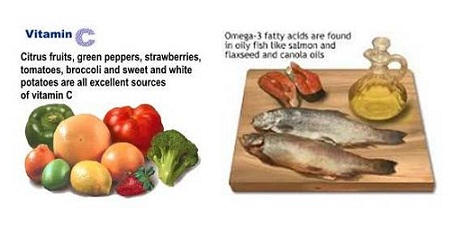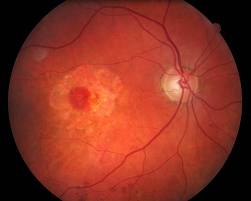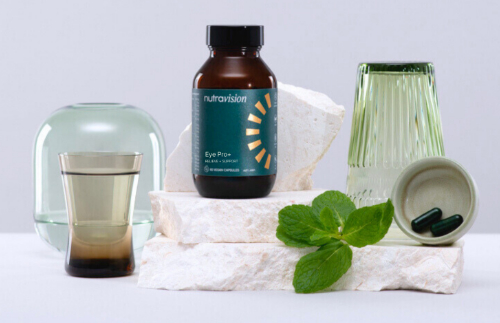
Is diet important in maintaining our eye health? The answer is: YES. In fact, it is absolutely essential. Unfortunately, many are not aware of this. In April 2012, the Ocular Nutrition Society issued a consensus statement calling for urgent need to educate the public on the importance of nutrition in supporting eye health.
We all know that having a diet low in cholesterol, trans-fatty acids and LDLs (low density lipoproteins) but high in HDLs (high density lipoproteins) will help to maintain our cardiovascular system running healthily. However, eating the right foods and having the right diet is not just about keeping your cardiovascular system healthy. Your body and eyes requires regular and constant nourishment and replenishment of amino acids, vitamins, minerals, carbohydrates and fatty acids that it metabolizes throughout the day.
However, eating the right foods and having the right diet is not just about keeping your cardiovascular system healthy. Your eyes also require regular and constant nourishment and replenishment of amino acids, vitamins, minerals, carbohydrates and fatty acids that it metabolizes throughout the day. Some eye problems occur due to a diet that is insufficient in certain nutrients. An example is nutritional amblyopia which can be caused by vitamin B12 deficiency.
Amino acids are the building blocks of our cells and tissues. Vitamins and minerals ensure that the biochemical and physiological processes in our body running at an optimal level. For instance, vitamin C (ascorbic acid) is a co-factor in collagen synthesis, and is vital for the healing processes vital to our eye health. Carbohydrates are an important source of energy. Fatty acids too can be used for energy, but more importantly, they are essential components of cell and tissue structure.

Adequate nutrition and replacement of these essential food types therefore keeps the bodily functions running healthily and smoothly, including that of the eye. The key here is balance. A well-balanced diet with all these essential food types is sure to keep your eye healthy and free from eye problems.
One of the key components of a well-balanced diet is the intake of fruits and vegetables. Apart from being an excellent source of vitamins and minerals such as Vitamins A, C and E, iron and zinc, fruits and vegetables are also rich in antioxidants and ocular pigments that are important for eye health and vision. Fish oils and nuts are excellent sources of omega-3 fatty acids and antioxidants.
The antioxidants work by counteracting damage from oxidants that are released from the natural biochemical processes that occur within our cells. The more antioxidants there are, the greater the protective effect and the less the cellular damage. This is concept is particularly important in the age-related degenerative diseases of the eye, such as cataract, glaucoma and age-related macular degeneration. Studies are underway looking at how antioxidants can be harnessed to protect the lens, optic nerve and macula respectively from oxidative damage.

Antioxidants may reduce the risk of age-related macular degeneration (AMD).
One fact that not many people know is that the macula contains many pigments, such as lutein and zeaxanthin, which are essential for our vision. These pigments are involved in phototransduction, which is the process of converting the light that you see into chemical signals that your brain can understand and decipher. Considering that you would probably use your eyes virtually 99% of your time while awake, these ocular pigments therefore get used up very quickly.
Replenishing and replacing these ocular pigments is therefore vital in maintaining health of the eye, or more specifically, the macula. These are in abundant supply from green leafy vegetables (such as spinach, kale and lettuce) and colorful vegetables (such as peppers and corn). Indeed some have suggested that a diet with lots of natural ocular pigments may help prevent or delay macular eye problems, such as age-related macular degeneration.

Peppers and spinach are excellent sources of pigment, such as lutein and zeaxanthin, which are important for the normal metabolism of the macular photoreceptors.
Follow these guidelines to give your eyes the best nutrition and to reduce the risk of eye problems:
1. Eat lots of fruits and vegetables. Everyone knows this. The general recommendation is to eat five portions of fruits and vegetables daily. But there is no reason why you should just limit yourself to 5 portions. Have more than that. Eat plenty of spinach, kale, lettuce, carrots, peas, corn, peppers, avocado, chillis, melons, guava, grapefruit, bilberry, wolfberry and so on. The idea is that the more antioxidants, ocular pigments, vitamins and nutrients that you eat, the better it will be for your eye health. However, always eat in moderation. Too much of one single fruit or vegetable will result in the nutrients being excreted in urine rather than being used by your body.
2. Eat plenty of whole grains and cereals. Compared to refined grains, whole grains and cereals have lots more fiber. The high fiber content helps to slow down digestion, ensures that the food is digested properly and prevents constipation. With the fiber taking up space in your digestive tract, you feel hungry less easily and allows better control of the amount of food you eat. It has been suggested that refined sugars and refined white flour may increase the risk of eye problems, particularly those due to the aging process. Ideally, aim for 100% whole grain for more than half of your daily grains and cereals intake. As a general rule, follow the 5/5 rule: less than 5 g of sugar but more than 5 g of fiber.
3. Take plenty of omega-3 essential fatty acids. These are found in fish, flaxseed and nuts (such as walnuts). Omega-3 fatty acids help to maintain eye health by improving blood flow and transport of oxygen and nutrients to the eyes. These may help with reducing the risk of eye problems such as cataract, macular degeneration and dry eyes.
4. Eat healthy protein. Try to take lean meat, white meat, seafood and nuts as your main source of protein. Eggs are also an excellent choice of high-quality, low calorie protein. New research has shown that eggs may actually be protective for heart disease instead of otherwise. Eggs are also rich in the essential amino acids, vitamin D, vitamin B12, selenium, iodine and other antioxidants. There may also be a protective effect against cataract and age-related macular degeneration due to the high lutein and zeaxanthin content.
5. Avoid processed foods. If you really want to maintain your eye health and reduce the risk of eye problems, try to cut down on excessive calories and processed food intake. This means cutting down on fried foods, sugary and starchy foods, salty foods, greasy foods, fast foods and junk foods. All these foods are full of sodium and saturated fats, which are not good for your eyes or for your general health. Ensure your daily sodium intake is no greater than 2 g per day. Salt and saturated fats are associated with high blood pressure, diabetes mellitus and vascular disease, which in turn are linked to vascular eye problems such as vein occlusions.


